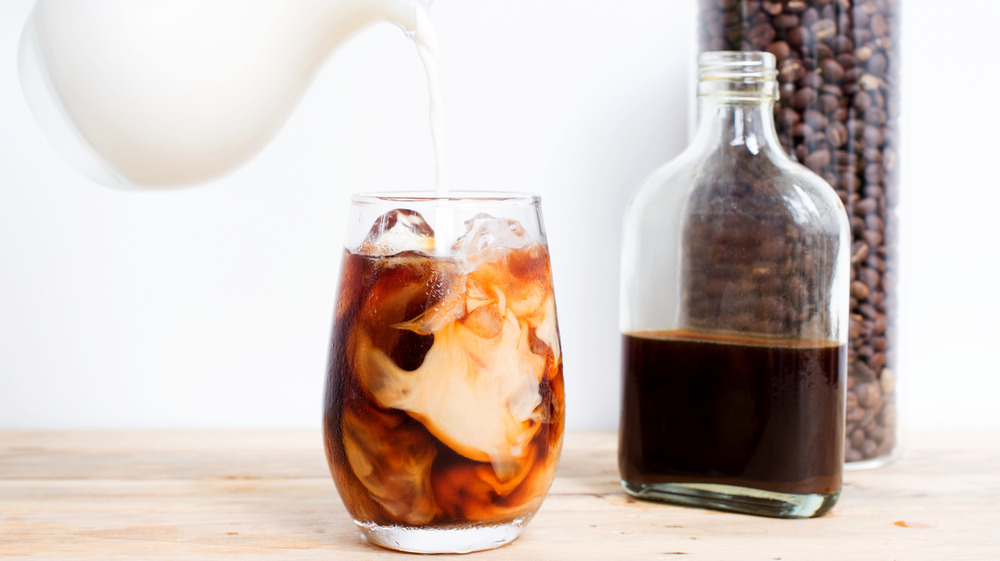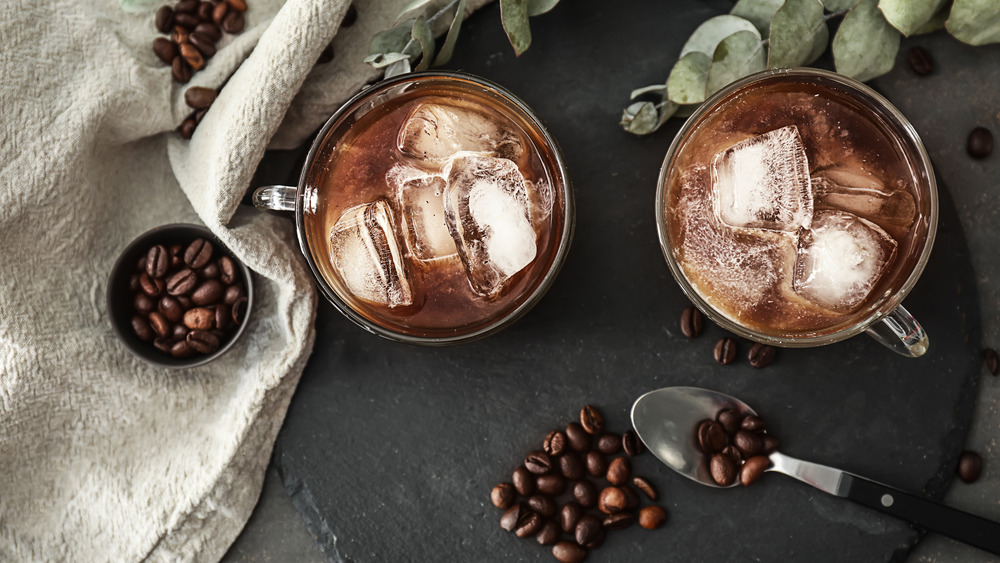What Is Cold Brew Concentrate And How Is It Different From Regular Cold Brew?
As we prepare ourselves for warm weather, our minds are already on the cold, energizing beverages that give us life on hot, breezy days — and that we're more than happy to slurp even in the dead of winter. We're talking cold brew. Yes, that dark kick of pure, teeth-gritting caffeine that has banished the memory of boring old iced coffee into the dark recesses of the mind.
And because the quality of your cold brew can make-or-break your morning, it's important to know what kind you're getting. With a "regular" cold brew you might order from a local coffee shop or purchase in a can or bottle at the store, what you see is what you'll be drinking. You can have the drink as-is, without anything added (via the Kitchn). But when you see the word "concentrate" on a container of cold brew in the supermarket or in a recipe for a make-at-home version, what you'll be getting is coffee that's supposed to be diluted with water or some kind of milk. The mixture is "concentrated," which means, much stronger and more intense, according to the Worktop.
What to know about cold brew concentrate
The difference between cold brew concentrate and "regular" cold brew is similar to the difference between espresso and an Americano. Cold brew concentrate has less water in it, and you have a little more flexibility in what you add, whether it's water or milk, per the Worktop. If you're buying cold-brew at a store, the packaging should be enough of a giveaway to let you know what you're getting. A single serving container of cold brew or a bottle labeled "cold brew" is likely ready to drink, while the "concentrate" might be labeled as such with directions for serving.
If you're brewing at home, though, it gets a little more complicated. You might want to choose to brew your own cold brew not only to save a few bucks but also, as the Worktop reminds us, because cold brew tastes best served fresh instead of after months on a shelf. If you brew a denser batch of concentrate, you might also save some space over a batch of regular cold brew. It's probably a good idea to look for recipes that are for cold brew concentrate, which will have a higher coffee to water ratio, usually 1:4 (via Milk and Pop).

